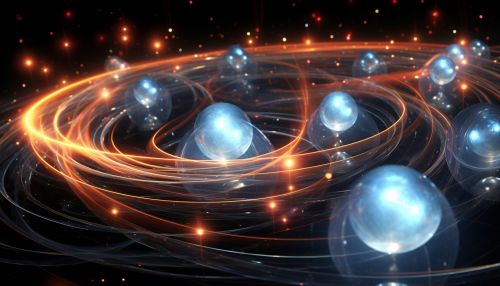Max Planck
Early Life and Education
Max Karl Ernst Ludwig Planck was born on April 23, 1858, in Kiel, Germany. He was the sixth child of Johann Julius Wilhelm Planck, a professor of constitutional law, and his second wife, Emma Patzig. He attended the Ludwig Maximilian University of Munich and the Friedrich Wilhelm University in Berlin, where he studied physics under the guidance of Hermann von Helmholtz, Gustav Kirchhoff, and Michael Faraday.


Career and Achievements
Planck made significant contributions to theoretical physics, particularly in the field of quantum mechanics. His most notable achievement was the development of Planck's law, which describes the spectral density of electromagnetic radiation emitted by a black body in thermal equilibrium. This law became the basis of quantum theory and won him the Nobel Prize in Physics in 1918.


Planck also made significant contributions to the theory of heat radiation, which resulted in the formulation of the Planck postulate. This postulate states that electromagnetic energy could be emitted only in quantized form, essentially in discrete units called quanta. This was a radical departure from classical physics and paved the way for the development of quantum mechanics.
Quantum Theory
Planck's work on black body radiation led him to the formulation of quantum theory. In 1900, he proposed that energy is made of individual units, or quanta. This was contrary to the prevailing belief of the time that energy was continuous. His theory was initially met with skepticism, but it was later validated by the work of other physicists, most notably Albert Einstein.


Planck's quantum theory revolutionized our understanding of atomic and subatomic processes, and laid the foundation for the field of quantum mechanics. It also led to the development of quantum electrodynamics (QED), quantum field theory (QFT), and quantum chromodynamics (QCD).
Later Life and Legacy
Planck retired from Berlin University in 1926, but continued to give lectures and speeches throughout Europe. During World War II, he experienced personal tragedy when his son Erwin was executed by the Nazis for his involvement in a failed plot to assassinate Hitler. Planck died on October 4, 1947, in Göttingen, Germany.


Planck's legacy in physics is immense. His work on quantum theory marked a turning point in the history of physics and set the stage for the development of modern quantum mechanics. The Planck constant, which is central to quantum theory, is named in his honor. His name is also associated with the Planck units, a set of natural units of measurement that are fundamental to quantum physics.
